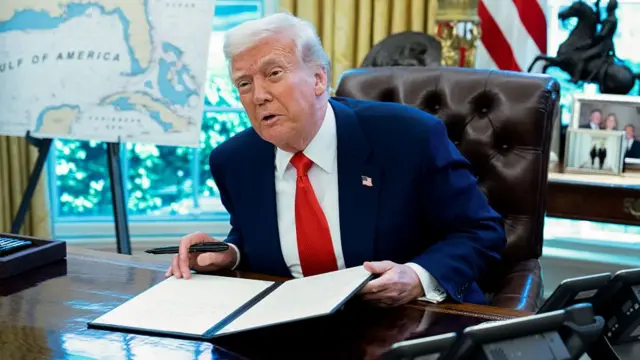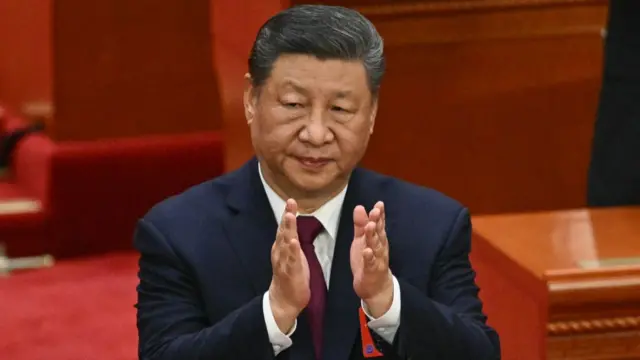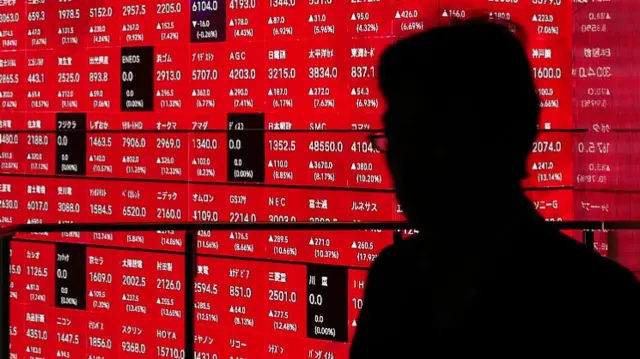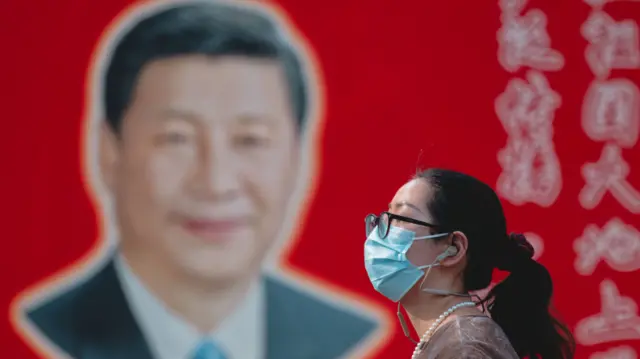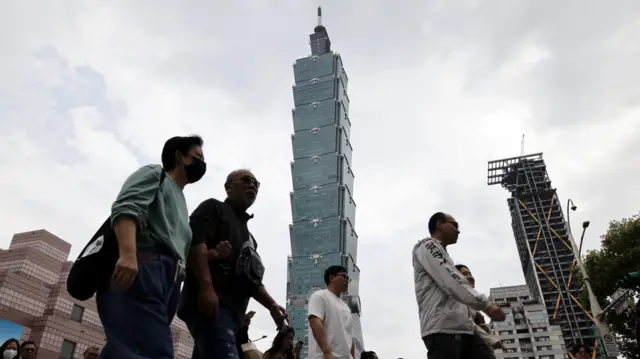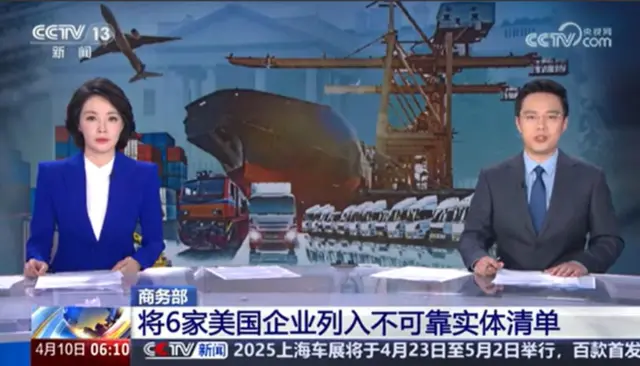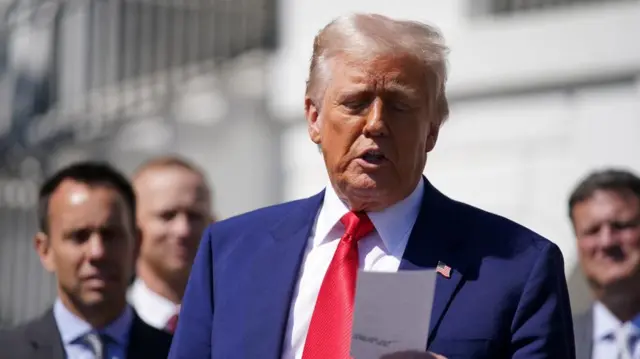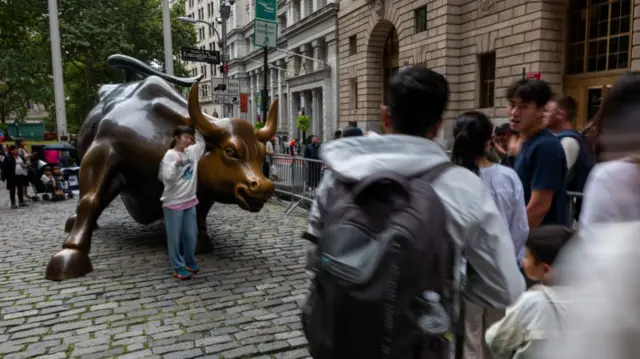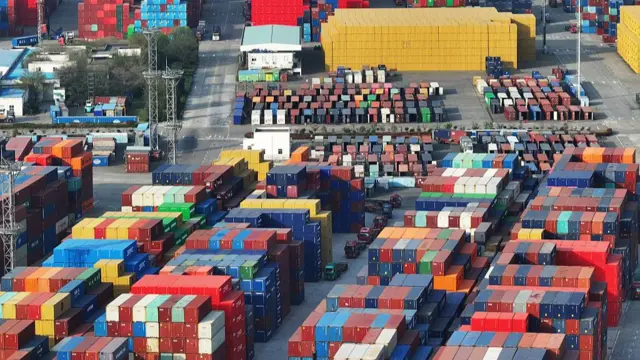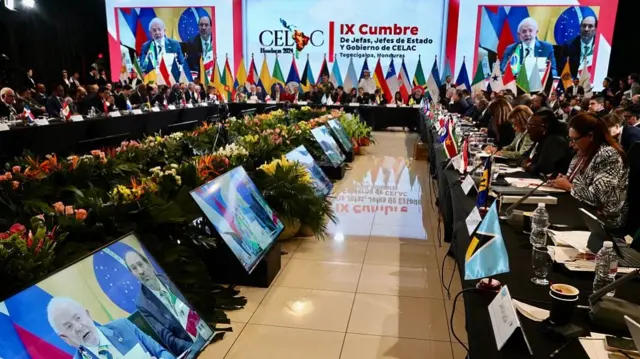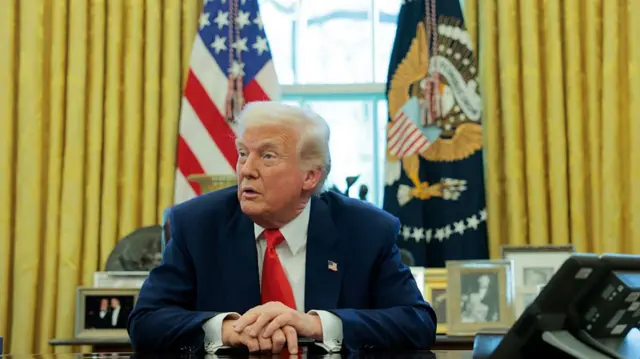Where will Chinese goods go if the US is closed for business?
如果美国关闭了商业,中国商品将流向何处?published at 06:36 British Summer Timepublished at 13:36
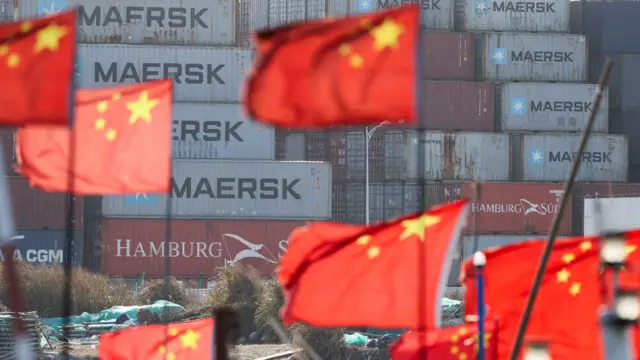 Image source, Reuters 路透社
Image source, Reuters 路透社Much of China's exports used to go to the US - but with the
current tariffs - where might they end up?
中国的大部分出口曾经流向美国,但在当前关税的情况下,它们可能会流向哪里?
This has become a "massive diplomatic and geopolitical
headache for the Chinese leadership", says The Economist's geopolitics
editor David Rennie, who recently met with Chinese officials and scholars.
《经济学人》的地缘政治编辑大卫·伦尼表示:“这已成为中国领导层的一个‘巨大的外交和地缘政治难题’”,他最近与中国官员和学者会面。
"China also has the additional problem that if America
really stays closed off to Chinese exports, those exports are going to have to
go somewhere else. I was told in Beijing [that] China is already very
concerned... by the idea that they can end up really alienating and aggravating
places like Europe, even partners in Latin America, the Global South," he
says.
“中国还有一个额外的问题,如果美国真的对中国出口关闭,那么这些出口就必须去其他地方。我在北京被告知,中国已经非常担心……他们可能会真正疏远和激怒像欧洲这样的地方,甚至是拉丁美洲的合作伙伴,全球南方国家,”他说。
"Because if a tidal wave of Chinese exports ends up
swamping those markets and damaging employment and jobs in lots of countries
around the world because it can't be sold in America, that's a massive
diplomatic and geopolitical headache for the Chinese leadership."
“因为如果一波中国出口潮淹没了那些市场,并损害了世界各地许多国家的就业和工作,因为它无法在美国销售,那对中国领导层来说就是一个巨大的外交和地缘政治难题。”
